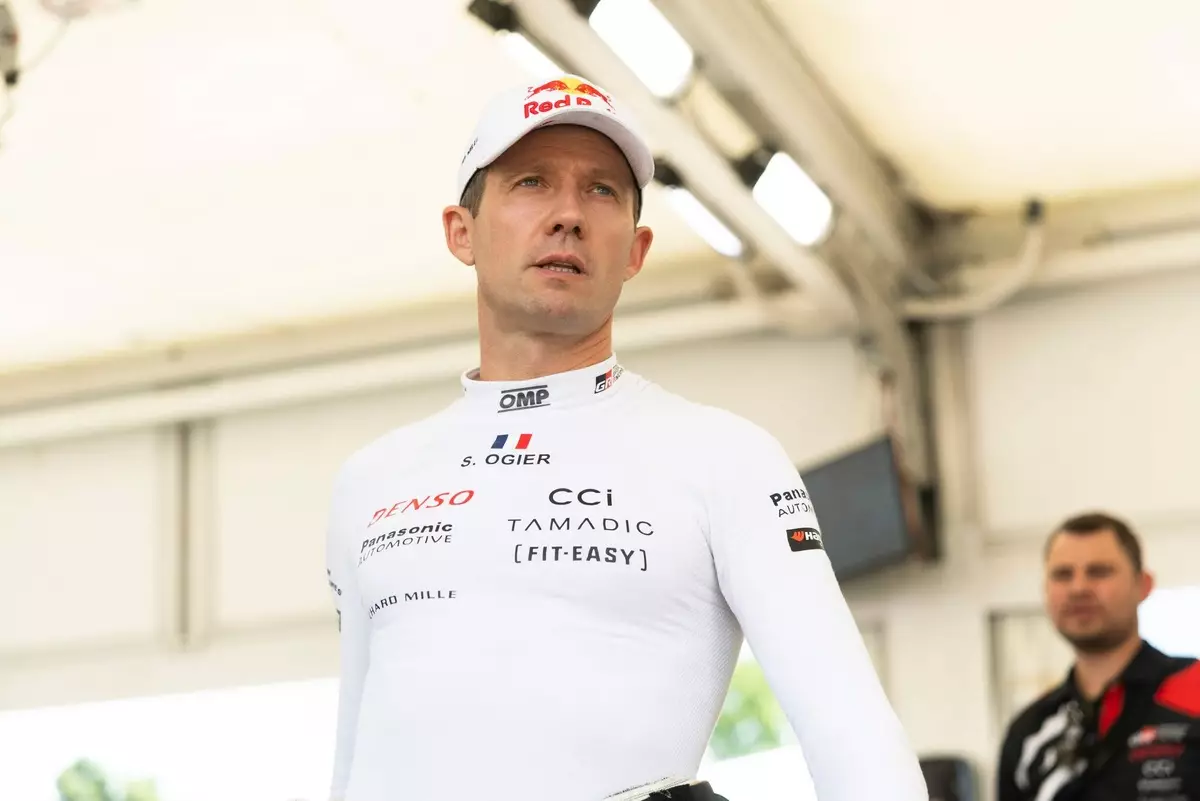Few drivers in the history of the World Rally Championship (WRC) exemplify resilience and brilliance quite like Sébastien Ogier. Despite deliberately limiting his participation to select rallies, Ogier’s recent performance transcends typical expectations for a part-timer. His ability to rack up three victories and consistently remain at the front of the pack signals more than just luck—it’s a testament to his unwavering skill and strategic mindset. In a sport built on unpredictability, Ogier’s selective engagement has not only allowed him to preserve his edge but also to dominate with a finesse that challenges the conventional approach to championship campaigns.
This approach raises questions about the value of overcommitment versus targeted excellence. Ogier’s case affies the idea that quality often exceeds quantity. His decision to compete in only five of the first rounds, yet maintain an average of 28 points per rally, demonstrates that precision and preparation trump relentless participation. In a broader context, his campaign underscores a fundamental truth: greatness is not solely measured by the number of events attended but by the impact made when it matters most.
The Unexpected Championship Contender
Perhaps most striking is Ogier’s position in the championship standings. Despite missing nearly half of the season’s rallies, he sits only 21 points behind the leader, Ott Tänak. This remarkable feat defies the typical expectation that participation directly correlates with leaderboard positioning. Ogier’s proximity to the top highlights the unpredictable nature of rally racing where brilliance can sometimes triumph over sheer volume of participation.
More importantly, Ogier’s recent success raises the possibility of an unforeseen championship battle. His statement that he’s “not ruling out” fighting for the title if his momentum persists injects a new narrative into the season—a seasoned champion contemplating an underdog comeback. It reflects a mindset that refuses to be constrained by perceived limitations or conventional wisdom. Ogier’s openness to future rallies suggests that, despite his self-professed focus on supporting Toyota’s success, his competitive fire remains unquenched. This scenario challenges the notion that retirement and semi-retirement mean stepping away from the thrill of victory entirely.
The Strategic Balance Between Assist and Ambition
Ogier’s role within Toyota appears to be a careful balancing act—helping secure manufacturer titles while contemplating personal aspirations. His previous decision to extend his partial campaign into ten rounds last year exemplifies a pragmatic approach: contributing to team success without overextending himself. Yet, as he navigates this delicate balance, the potential for a full-on pursuit of the drivers’ championship remains alive.
This duality reflects a broader strategic question in professional motorsport: Should aging legends prioritize team trophies or chase personal glory? Ogier’s willingness to consider more participation if his performance continues to be strong indicates a desire to stay relevant and competitive. It suggests that even seasoned drivers understand the allure of one more shot at greatness, especially if circumstances align favorably. His measured optimism and calculated risk-taking exemplify a mature sportsmanship—a recognition that pushing boundaries can revive aging prowess and rekindle rivalries.
Adapting and Evolving in a Competitive Arena
Ogier’s recent performances also expose the adaptive strategies engineers and drivers alike employ in rallying’s ever-changing landscape. After Oliver Solberg’s dominant run at Rally Estonia—a clear sign of the team’s evolving approach—Ogier has been testing different set-ups and fine-tuning his pace. His acknowledgment that he experimented during the test but struggled to replicate the same feeling during shakedown underscores the unpredictable nature of rally car setup. It exemplifies the challenge of maintaining consistency across diverse terrains and conditions, even for the most experienced drivers.
Furthermore, Ogier’s attitude embodies a growth mindset. Instead of being discouraged by setbacks, he views exploration as part of the process. His openness to trying “different directions” signifies a player willing to adapt, learn, and refine—traits that distinguish true champions. This adaptability might be the secret weapon that propels him into contention, challenging notions that age equates to decline.
In the often unpredictable world of rally racing, Sébastien Ogier’s current trajectory exemplifies how perseverance, strategic insight, and unyielding ambition can redefine expectations. His refusal to be pigeonholed as merely a part-time competitor with a legacy to leave behind demonstrates that true greatness continues to evolve. Ogier’s story is not just about racing; it’s a testament to the relentless pursuit of excellence, the courage to challenge norms, and the willingness to accept that sometimes, less is more—especially when the results speak volumes. His journey reminds us that in rallying, as in life, the most compelling victories often come from the most unexpected places.

